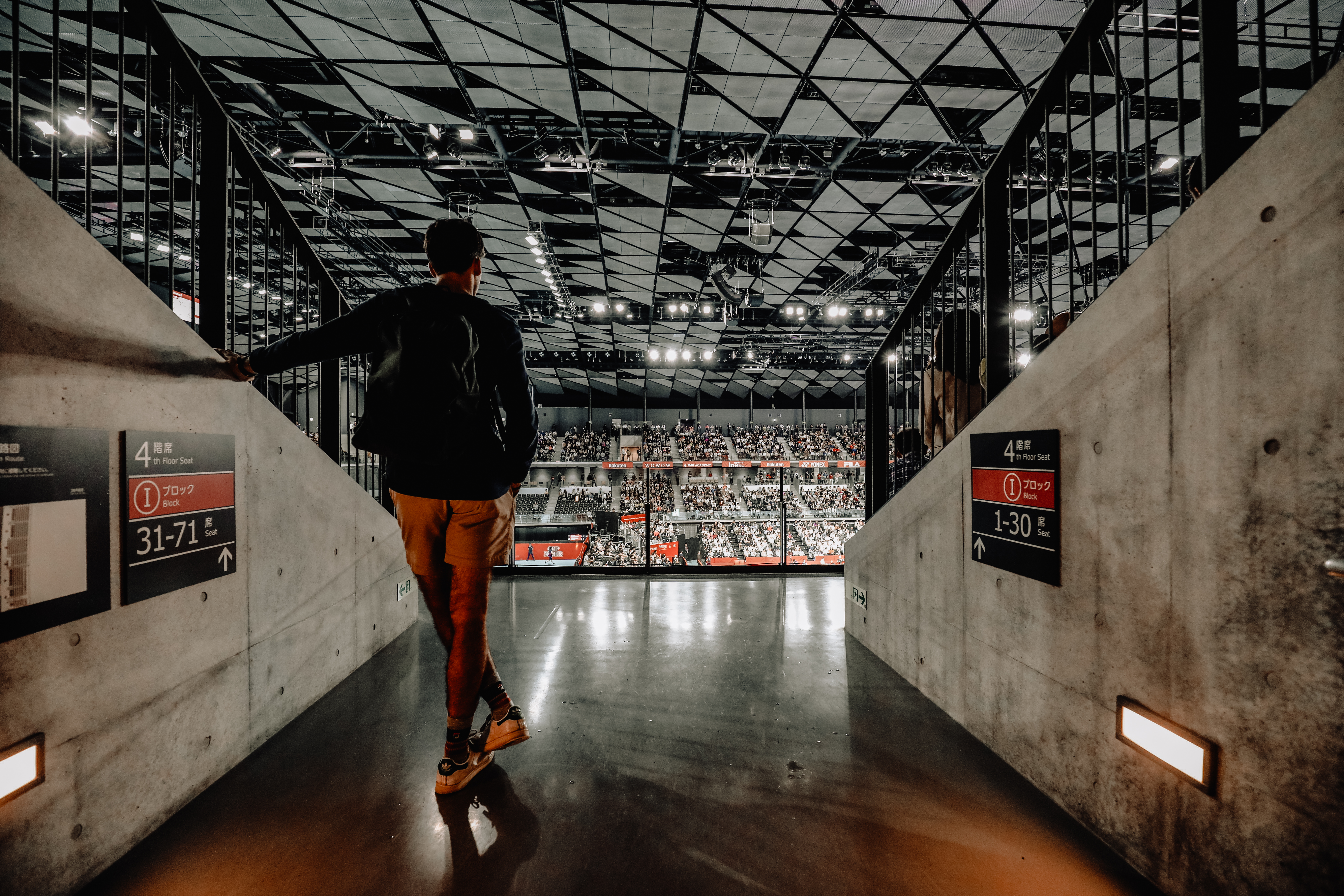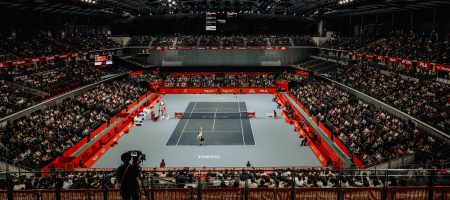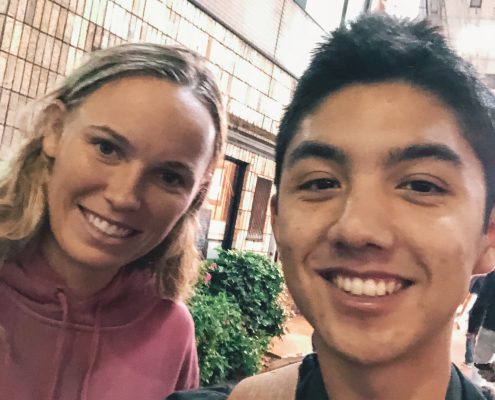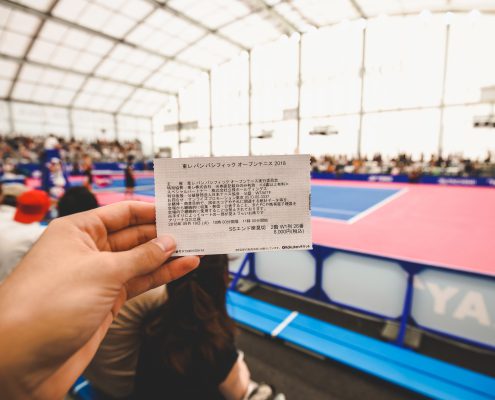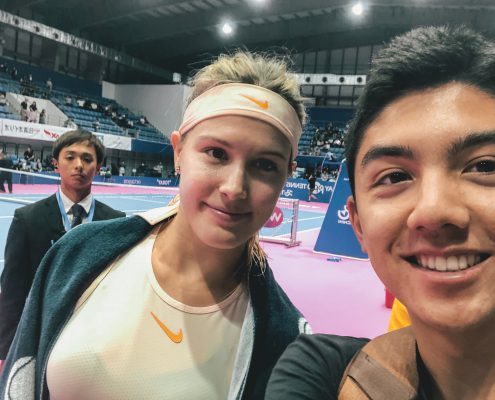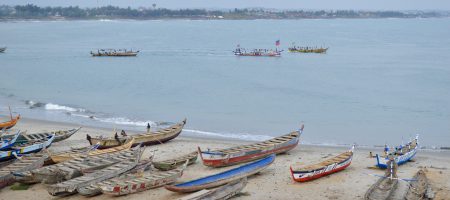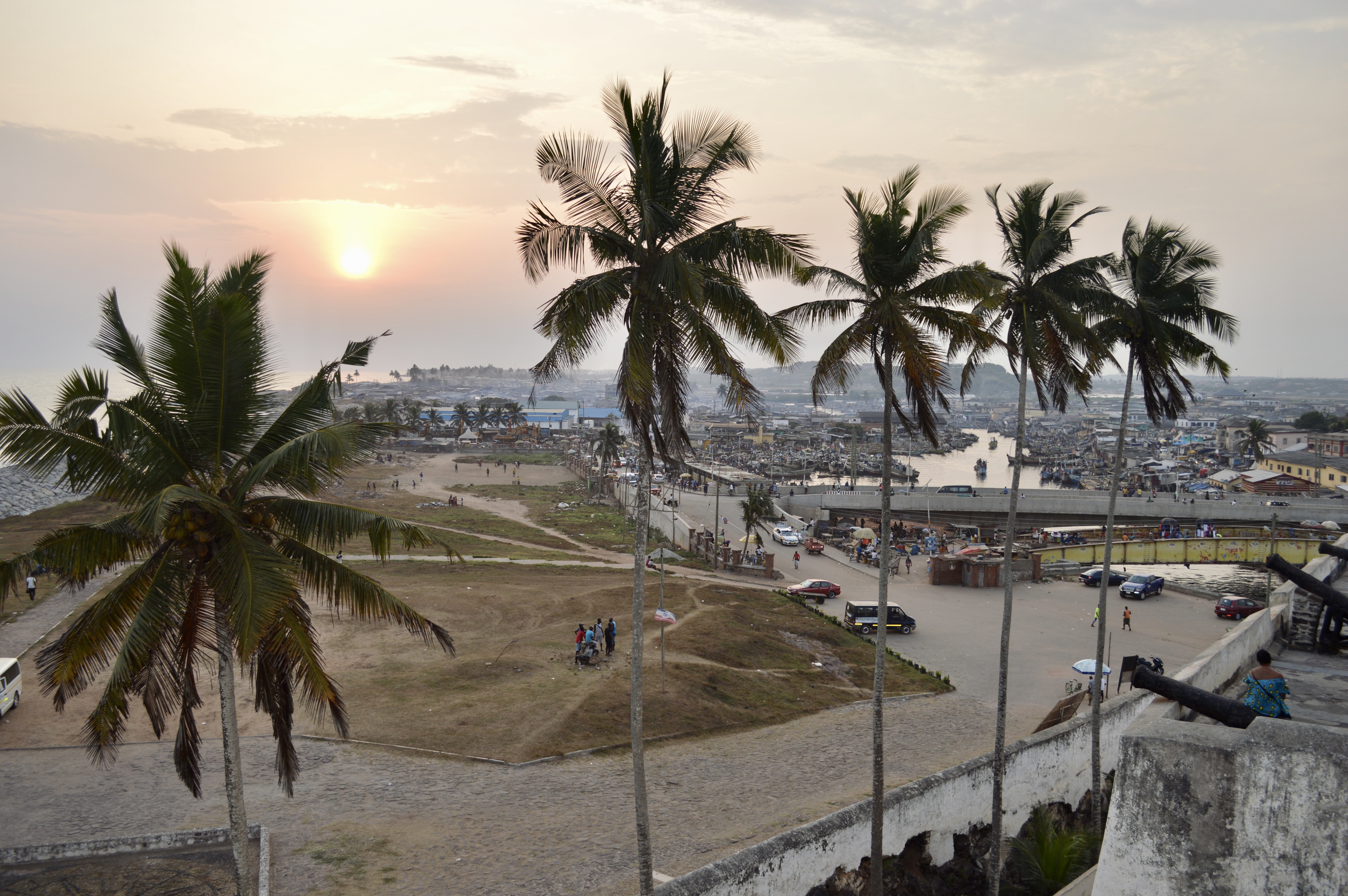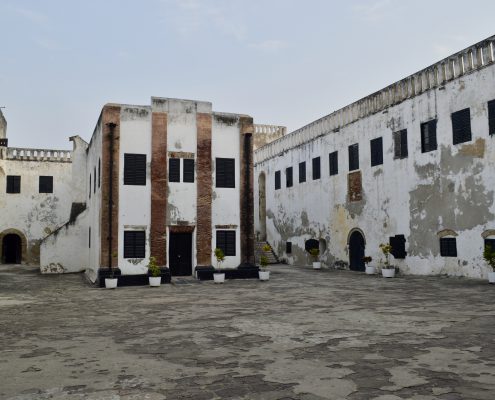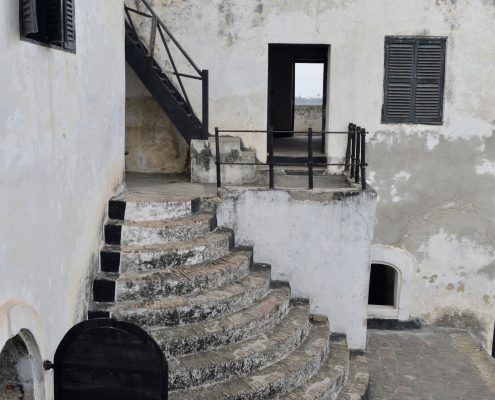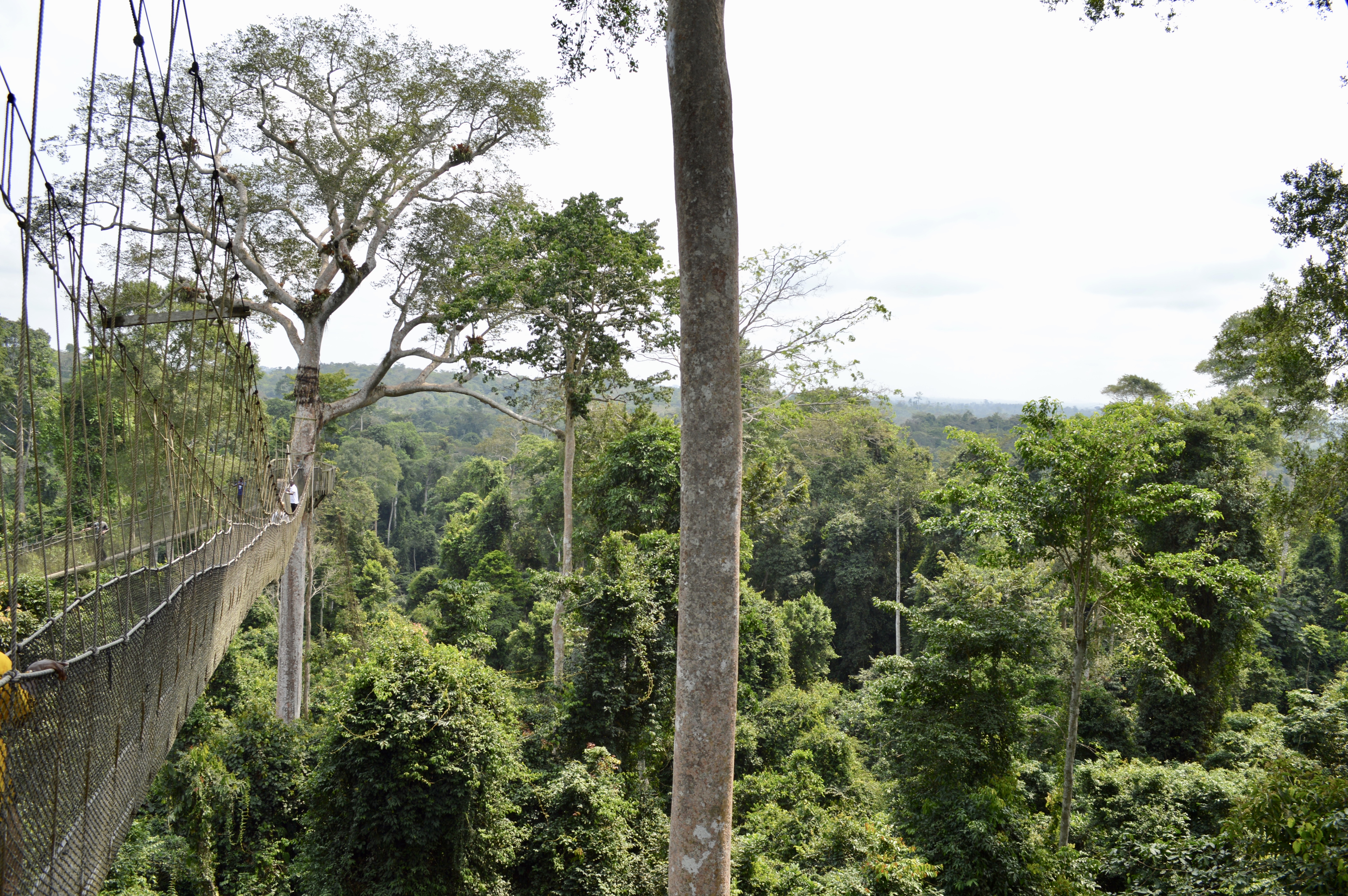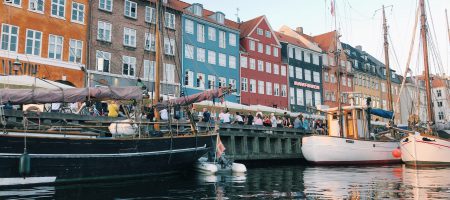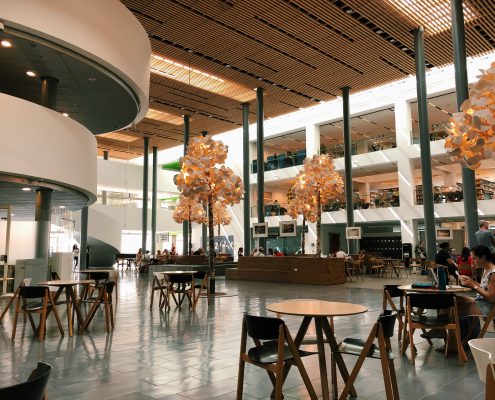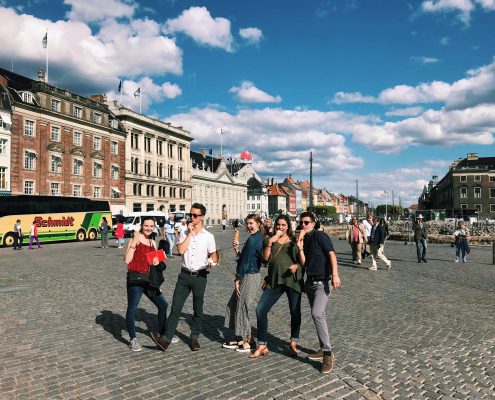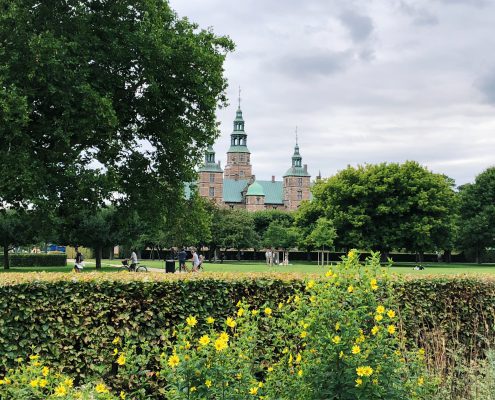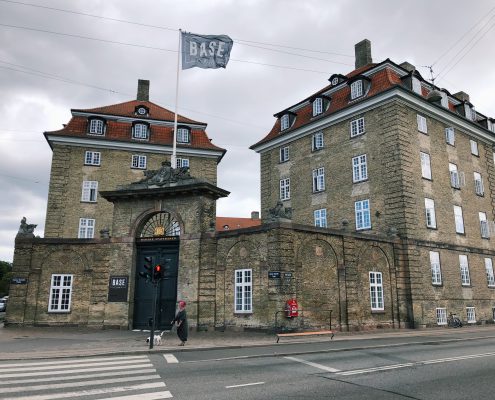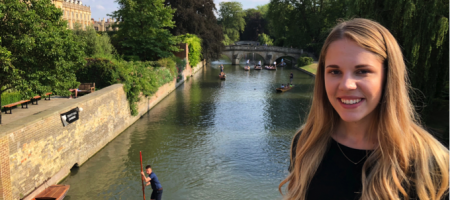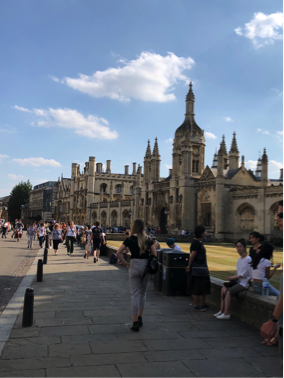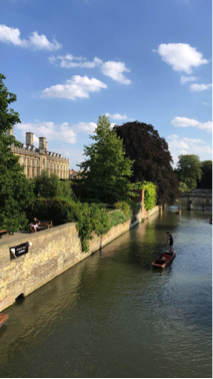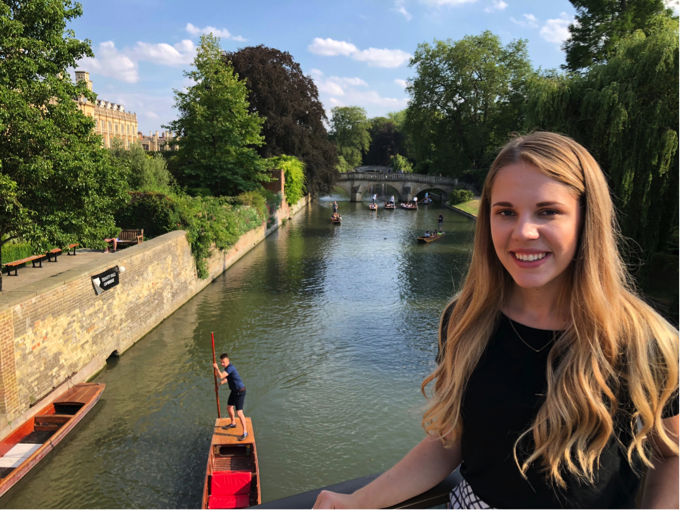Tokyo | Tokyo & Rakuten Open

By Deran Chan
Over the past few weeks, I had the opportunity to attend both the Rakuten and Tokyo Open tennis championships. I’m a huge tennis fan and I was super excited to attend a professional tennis tournament outside of the United States. The last few months of the year constitutes the “Asian Swing” of the tennis calendar and first stop: Tachikawa. The Tokyo Toray Pan Pacific Open is held by the WTA (Women’s Tennis Association) and is the largest international women’s tennis tournament in Japan. Headlining the tournament was Japanese superstar Naomi Osaka. After her recent triumph at the U.S. Open over Serena Williams, Osaka became an overnight sensation and Japan’s first grand slam champion. The event was held about an hour from my university, and I successfully made the trek with my brief knowledge of Japanese transportation! The venue was held indoors, and a general admission ticket gave me access to all of the matches.

I went on the first Saturday of the tournament and watched former World #7 Eugenie Bouchard (Canada) play local favorite Moyuka Uchijima. I managed to sneak to the front row, and as you can see, had the best seat in the house. After her win, Genie was kind of enough to take a photo with me and I definitely didn’t freak out. On the way home from the tournament, one of the most exciting things happened. I was across the street from Tachikawa Station, and I thought I recognized a familiar face. Standing in front of a 711 was World #1 and Grand Slam Champion – Caroline Wozniacki. Starstruck, I asked for a picture and asked her how she liked Tokyo (while trying to keep it together of course) and wished her luck throughout the tournament. What an experience.
A couple weeks later I went to the Rakuten Open, the first Asian tournament of the year hosted by the ATP men’s tour. Walking up towards the main stadium, fans were greeted by tents showcasing traditional Japanese food, oversized tennis rackets, and popular sportswear. It was raining out but that didn’t stop waves of Japanese locals and tourists alike from watching their favorite players. A sold-out crowd packed the Musashino Forest Sports Plaza, but somehow my friends and I managed to sit together. We witnessed Japanese player Kei Nishikori win on home soil with the help of an electrifying crowd – to reach his 3rd final at this tournament. Unfortunately, I didn’t get any pictures with the players this time but the immaculate tennis stadium and modern architecture definitely made up for it. There is no doubt that fans are awaiting next year’s Rakuten Open which will return to Ariake Coliseum, a newly renovated stadium undergoing preparations for the Tokyo 2020 Olympic Games.
